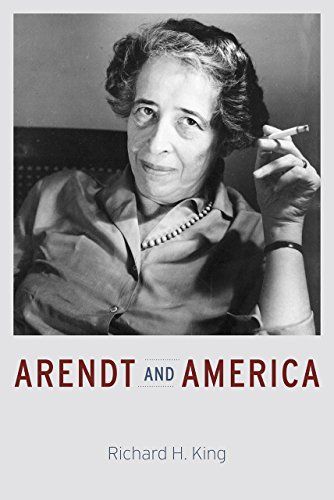
Arendt and America
Books about Hannah Arendt abound; but there are none that deal with Arendt's 30-year time in America, at least not until now. Richard King's study of Arendt and America will be quick to establish itself as one of the most significant publications in intellectual history in recent years. Arendt's major works--The Human Condition, The Origins of Totalitarianism, On Revolution--were written in America. King tells us how Arendt came to America in 1941, at the midpoint of her life, rising to prominence among American intellectuals, and what it is she brought with her by way of intellectual and cultural equipment. We get a fully fleshed portrait of Arendt's position among the New York intellectual of the post-War/Cold War world, and King looks closely at Arendt's sharply framed responses to the political upheavals of the 1960s. By no means does King elide the great controversy over Arendt's Eichmann in Jerusalem (1963), her major claim to fame, its notoriety still very much alive today. Arendt focused on Eichmann's use of language and how that affected the working of his conscience. (King also take up the Eichmann affair in the book's conclusion, where he discusses the feature film, Hannah Arendt (2012), directed by Margarethe von Trotta, and the recent book by Bettina Stangneth on Eichmann arguing against the "banality of evil" notion of Arendt, and in favor of finding Eichmann to be an anti-Semite who played a key role in organizing the Holocaust.) King maintains that Arendt's experience in America shaped what she thought and wrote. The pivot of that experience is found in Arendt's ambivalence about America--the tension between the idea of the "republic" as formulated by the Framers, and the threat to this idea posed by mass consumer society, particularly after 1945. In the end, the book as a whole is a mediation on the question of whether Arendt ever became an American rather than German thinker. Her major contribution to American intellectual history and political thought was an American version of republicanism; her great worry was that this republic would be lost.